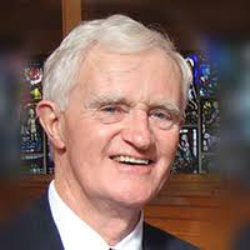Eric Hodgens. Can Pope Francis Turn the Church around?
March 15, 2015
The question needs to be asked because the Catholic Church is in trouble. Firstly, it has a . credibility problem. Affiliation has been dropping since the 60s. Sunday Mass attendance, the first indicator of affiliation, backs this up. The Churchs compelling message of Jesus as the icon of life defeating death is not getting through. Relentlessly, Catholics are feeling more and more marginalised or leaving the Church altogether. Bishops are not leading. Sexual and financial scandals have blackened the Churchs image. The administration is too centralised and preoccupied with issues which are irrelevant to the lives of people whether Catholic and not.
Secondly, the Church has a ministry problem. Canon Law demands that an ordained priest be the sole leader of every parish. But it is forty five years since enough have come forward to fill the basic demand for Parish Priests. It is a sellers market for ordained priests whether suitable for the task or not. Parishes with good priestly leadership are doing well but they are getting fewer.
Pope Francis has already brought a big improvement to the credibility problem. The whole world seems to be listening to him. His message is positive, encouraging and patently sincere. He mediates a God of love and mercy. He understands lifes complexities and tries for practical answers.
To understand the Francis Effect it helps to get inside his mind.
For years he has held a Theology of the People. Gods holy, faithful people get things right.
For years he has worked by four principles:
- Unity is more important than conflict.
- The whole is more important than the part;
- Time is more important than space.
- Reality is more important than the idea.
This last principle means that meeting real pastoral problems takes precedence over ideology.
Rome has changed already. He has sidelined doctrinaire moralising, insisting on Gods love and mercy. He has brought genuine, open discussion to Episcopal Synods.
His response to the financial scandal is a Secretariat for the Economy.
His response to priestly paedophilia is a Commission on the Sexual Abuse of Children.
And all of this is being done consultatively with his C9 committee of cardinals.
In two consistories he has created cardinals from diverse places with diverse importance. No dioceses can any longer presume its bishop will be a cardinal. The voting college has changed and, presumably, will be even more diverse if he has consistories each year. He knows what he is doing, and is doing it fast. His leadership in Rome is obvious.
At diocesan level his main influence is in the appointment of bishops. He has moderated the balance of the Congregation for Bishops which processes the appointments. The present generation of bishops has been chosen for their ideology rather than pastoral leadership. He has instructed the Congregation that bishops must be, above all, pastoral. The end result remains to be seen. Politics are hyperactive in this area. It takes a long time to replace a generation of bishops. Further, low recruitment of priests for forty years now means that the pool of episcopal candidates is very shallow.
The main problem is at parish level. The law insists that there be a Parish Priest. The shortage of priests is a world-wide problem. With local recruitment at near zero, bishops have scrounged priests from afar often from places more needy than ours. Most are foreign - nationally, culturally and linguistically - creating other problems. Increasingly parishes are under de facto lay leadership with an absentee Parish Priest maintaining nominal supervision. The result is a need for a structural change to ministry.
If we open the leadership catchment to lay Catholics we have a wider choice. Remember St Pauls model at Corinth which drew on the charisms of the whole community.
Forget the seminary system. Above all it has been a school for clericalism. Rather, select candidates on their ability, initiate them into the mystery then train speakers to proclaim, carers to care, organizers to administer, teachers to teach, liturgists to preside. Finally, give leadership to those whose leadership skills show up in their other work. Commission them all. Ordain the liturgists.
This would entail ending the clerical class. Still, it has to go if parishes and dioceses are going to work. Pope Francis speaks out against clericalism but is he willing and able to change this entrenched structure?
Eric Hodgens is a retired Catholic priest. This article first appeared in The Swag, a magazine published by Catholic priests in Australia.
